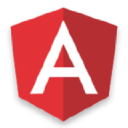Developing A Tool To Mock APIs With 100K Downloads As A Side Project
Hello! Who are you and what business did you start?
Hi! I’m Guillaume. A passionate full-stack developer living in Luxembourg. I am working full-time in the banking industry and started working on a new side project three years ago: Mockoon.
Mockoon is a developer tool that allows you to easily and quickly mock any REST API. It’s an open-source desktop application that has been growing steadily for three years.
We recently passed the 100k downloads mark and 10k monthly active users. We are pre-monetization and focusing on growth.

What's your backstory and how did you come up with the idea?
I have quite an unusual profile for a developer as I studied law like most of my family. I got my master’s degree in intellectual property in 2008 and worked six years as a legal advisor in various...

Download the report and join our email newsletter packed with business ideas and money-making opportunities, backed by real-life case studies.

Download the report and join our email newsletter packed with business ideas and money-making opportunities, backed by real-life case studies.

Download the report and join our email newsletter packed with business ideas and money-making opportunities, backed by real-life case studies.

Download the report and join our email newsletter packed with business ideas and money-making opportunities, backed by real-life case studies.

Download the report and join our email newsletter packed with business ideas and money-making opportunities, backed by real-life case studies.

Download the report and join our email newsletter packed with business ideas and money-making opportunities, backed by real-life case studies.

Download the report and join our email newsletter packed with business ideas and money-making opportunities, backed by real-life case studies.

Download the report and join our email newsletter packed with business ideas and money-making opportunities, backed by real-life case studies.




























